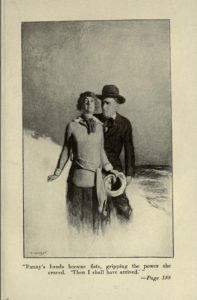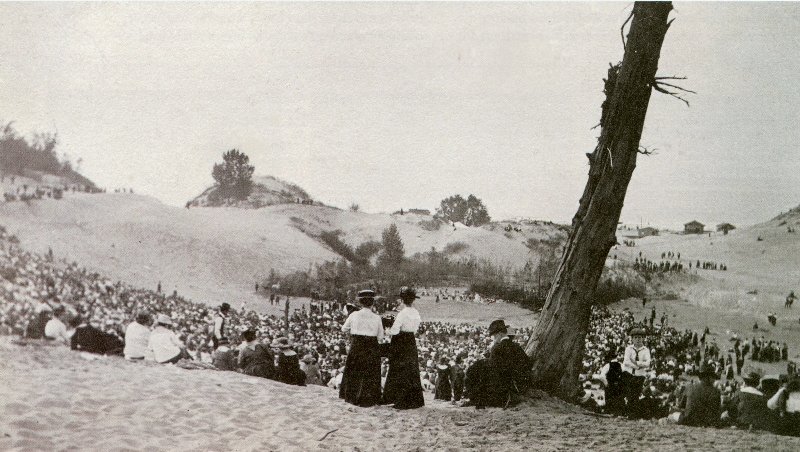Fanny Brandeis is a new woman, whose career comes first, and when Clarence Heyl, an unacknowledged suitor, asks her to picnic, she says that she’s so busy working that she has forgotten how.
But the next morning, Fanny is sitting in a train heading out from Chicago to the Indiana Dunes on Lake Michigan, a place Fanny had never heard of before. Passing the heavy industrial factories along the lakeshore, Heyl says, “See that curtain of smoke off there? That’s the South Chicago and the Hammond and Gary steel mills. Wait till you see those smokestacks against the sky, and the iron scaffoldings that look like giant lacework, and the slag heaps, and the coal piles, and those huge, grim tanks. Gad! It’s awful and beautiful.”
Heyl brings along a rucksack with sandwiches, chocolate, and grape juice. Packed beside the couple is a basket of fried chicken that Fanny’s African American cook, Princess, has cooked up so that they can go “picnickin'” in style. “San’wiches ain’t no eatin’ fo’ Sunday,” says Princess, and there is no arguing with her.
“They ate their dinner in Olympic splendor, atop a dune. Heyl produced unexpected things from the rucksack-things that ranged all the way from milk chocolate to literature, and from grape juice to cigarettes. They ate ravenously, but at Heyl’s thrifty suggestion they saved a few sandwiches for the late afternoon. It was he, too, who made a little bonfire of papers, crusts, and bones, as is the cleanly habit of your true woodsman. Then they stretched out, full length, in the noon sun, on the warm, clean sand.”

When they banter about work, Fanny admits she craves power, and in five years, she’ll have it, admitting to Heyl, “Then I shall have arrived. I shall be able to see the great and beautiful things of this world and mingle with the people who possess them.”
At sunset, they raced back to the train station and crammed into cars filled with pudgy sleeping babies and lunch baskets that smelled of bananas.
See Edna Ferber. Fanny Herself. Illustrated by J. Henry. New York: Frederick Stokes Company,1917.

